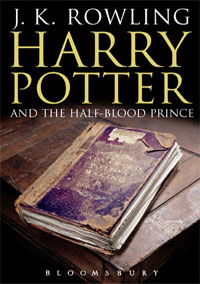 Walkden Fun Fair
Walkden Fun FairI've been thinking a lot about gypsies for the past month. It turns out I had a lot of misconceptions about them. In fact, I thought I'd better do my research before writing, and it turns out that even my corrected conceptions were misconceptions. Let's just start with my original misconceptions.
I was under the impression that gypsies were dark, mysterious, beautiful, romantic, and a little dangerous. I wouldn't think it a good idea to trust them to babysit your wallet or your babies. I had heard of Romani gypsies, and had decided all by myself that
Romani must mean they were from Romania or somewhere around there. I had absolutely no idea where they lived now, though I imagined they lived in lavish tents, moved frequently, and gathered around campfires every night. I thought all the women dressed like belly dancers and wore coined belly-dancing belts. All the men, of course, would wear bandanas covering their hair and be dangerously seductive. The children would be dusty urchins well-trained in picking pockets.
Before any friends or families of gypsies, or actual gypsies, start sending in their complaints, let me reinforce that I acknowledge that this was a misconception, and I apologize for any offense. If it's any consolation, when I heard I was moving to Texas at the tender age of eight years old, I figured I'd have to learn to ride a cow to school and would never see trees or grass again. I just tend to fill in any blank spots in my knowledge with my overactive imagination.
While we were in England, we were taken to a funfair in Walkden. Our host (and the source of my newest set of misconceptions) shall remain nameless. The whole funfair seemed to be run by one family. I named them father, mother, oldest sister, oldest sister's baby, oldest brother, sensible sister, pretty sister, youngest sister, and youngest brother. There were a few more I couldn't really place, so I designated them cousins. Our host informed me that this was a family of gypsies, and I was immediately fascinated. They weren't dark or beautiful, they didn't seem terribly mysterious, and they sure didn't seem romantic, though I thought they might still be a little untrustworthy, if not exactly dangerous. Father looked a little intimidating and was weathered by the sun. Mother was also weathered by the sun, but could have passed for any farmer's wife. Oldest sister was heavy and her baby was chubby, and neither one ever got up or moved from their resting places (that I saw,) and she kept sending youngest brother off for food from one of the cousins' stands. Oldest brother was fun to watch as he danced to the earsplitting music, but I was wary about watching him openly, so I watched out of the corner of my eye, feigning indifference. He seemed to think he was pretty sexy, but I just thought he was pretty funny. At least he was happy. Sensible sister was in her early teens and came across as the girl next door. Pretty sister was braided and made up and stood around posing a lot near oldest sister. Youngest sister shocked me into judgmental silence when she stood right there next to oldest sister and smoked a cigarette. She was no more than twelve, tops, if that old. Youngest brother was in his early teens, and seemed very pleased with himself that he was in charge of rides.
Overall, they looked like an average family. No dark hair except for oldest brother, and most were shades of dark blonde or light brown. Not a single coined belly-dancing belt in sight, which was probably a good thing. Our host explained to me that according to English law, gypsies were allowed to set up camp on any land, private or not, as long as they moved on within a specified amount of time. My new image of gypsies was this: lower income families, some of whom ran funfairs, undereducated children who were allowed to smoke and have children at very young ages, pitching tents in people's front yards or in pastures as they moved through the country.
After researching these things to be sure I wasn't going to lie to my readers, I realize I was wrong again. To summarize the things I've learned about gypsies: there are several types of gypsies, Romani being one type. Romani gypsies are not from Romania, but from India. When the gypsies came to Europe, Europeans just knew they were from somewhere vaguely non-European, like maybe Egypt. They were called, among other things, Egyptians and 'Gyptians, which is where the term 'gypsies' comes from. While they might have once had the reputation (or nearly) that I assigned to them in my original misconception, they are modern people who wear jeans and live in trailers (caravans) and move from caravan site to caravan site. The Caravan Sites Act is a little more complicated than allowing gypsies to set up on someone's front yard. As I read about their history and their lives, I was ashamed for being so judgmental. It's not a life I would envy, though they seem to be, for the most part, very proud of their heritage. Last but not least, most of the funfairs are put on by traveling families who belong to a Showmen's Guild and are
not considered gypsies. I think after all is said and done, I'm mostly disappointed that they don't wear coined belly-dancing belts. Call me shallow. Read more about Romani culture and history
here.
Related article:
"Rome's Tiny Thieves: Mischief at the Coliseum"






